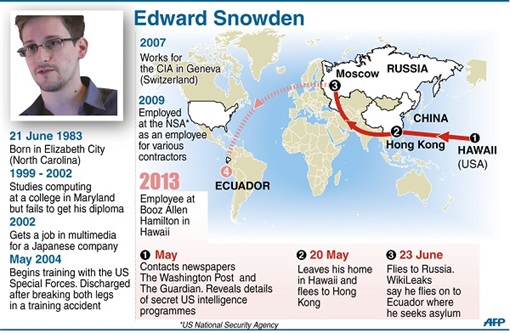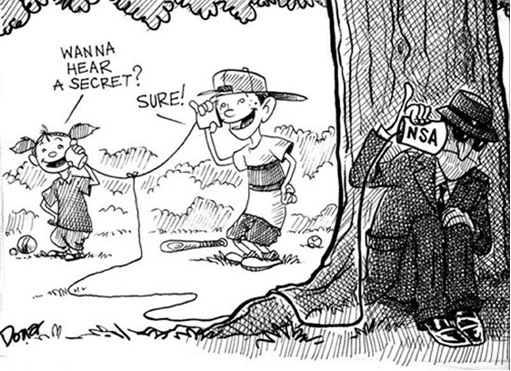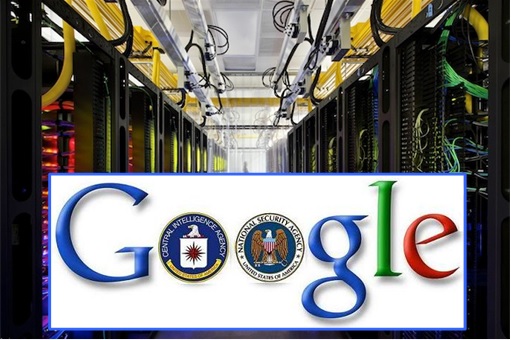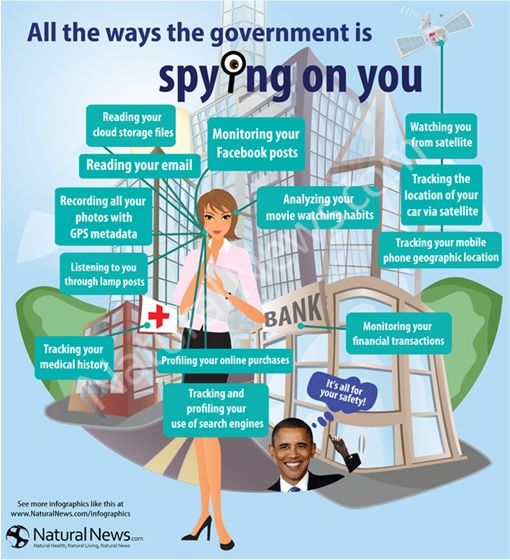On Saturday, October 11th, Edward Snowden, the N.S.A. whistle-blower, spoke via live video with the New Yorker staff writer Jane Mayer. In the interview, the former N.S.A., C.I.A., and D.I.A. employee was asked some questions of what the public (that’s you and me) can do to protect our privacy, now that it’s an open secret governments are spying on its own people for whatever reasons.
As expected, Snowden called for a reform of government policies. But we all know if won’t happen anytime soon for obvious reason, and most likely will not going to happen. Unlike in the 1940s to 1990s where government would spy on another government, nowadays governments are even spying on their own people, either for their political survival purpose or as part of pre-emptive measures against terrorism.
Snowden pointed out an interesting fact – when you say, “I have nothing to hide,” you’re basically saying, “I don’t care about this right.” This is specifically true about how ignorant people are about their rights. For example, when we wrote about how “Xiaomi Secretly Steal Your Data“, many gave lame excuses that “they have nothing to hide” (*grin*). They took the easy way out and never bother to ask if Xiaomi has the justification about its intrusion into your rights. This was precisely what Snowden pointed out in the interview.
Of course, Xiaomi has since apologised about its intrusion and rectified the problem. But if people did not ask or throw challenging questions at Xiaomi, they would probably don’t bother to stop spying, let alone apologize. But Snowden offers more than rhetoric about privacy rights in the interview. He added people should find encrypted tools and stop using services that are “hostile to privacy”.
Essentially, Snowden asks the public to stop and think about the security in general and your personal privacy in specific. And he offers some tips – get rid of Dropbox, Google and Facebook. Instead of using Dropbox, he says you should consider alternatives such as SpiderOak. The difference between Dropbox and SpiderOak, is that SpiderOak encrypts the data while it’s on your computer, as opposed to only encrypting it “in transit” and on the company’s servers as in Dropbox.
Snowden had actually advised people to get rid of Dropbox back in July this year because the product lacks security measures. He claims Dropbox is “hostile to privacy” because it controls the encryption keys, making it capable of handing over user data stored on its servers to the government. What this means is Dropbox is not “subpoena-proof” compares to SpiderOak simply because the latter does not control your encryption keys.
Here’s how it works: SpiderOak has users encrypt data on their machines – before they send it to the company’s servers. Hence, the company keeps no readable version of users’ passwords or data. So, if a government asks SpiderOak for your data, all it can give them is a scramble of numbers and letters. Of course, the disadvantage is if you forget your password, SpiderOak has no way of resetting it for you.
As for search engines, how many of us realize that it was only after some of Snowden’s documents leak that internet giants such as Google and Yahoo started to encrypt data passing between their servers and your computers or mobiles? Just open your desktop browser and type google and you will notice the “https” with the secured padlock icon visible. Do you know that this secured communication wasn’t there previously?
Snowden also suggested that while Facebook and Google have improved their security, they remain “dangerous services” that people should avoid. Wait, was that the reason why PM Najib visited Facebook office recently – to suck up to Mark Zuckerberg? Well, he may be too paranoid when he says you should not send unencrypted text messages, but instead use services like RedPhone and Silent Circle. But then he spoke from his experience as a security contractor, not an ordinary student or fishmonger.
Interestingly. Snowden dismissed claims that increased encryption on iOS will hurt crime-fighting efforts. Even with that encryption, he said law enforcement officials can still ask for warrants that will give them complete access to a suspect’s physical phone, which will include the key to the encrypted data. Additionally, companies like Apple, AT&T, and Verizon can be “subpoenaed” for their data.
And now the same question that people have been asking – why Snowden hasn’t come back to the United States to stand trial? Whether you’ve called him a chicken in the past or otherwise, he offers a simple answer – judging at how the U.S. government treated whistleblowers like Thomas Drake and Chelsea Manning, he was convinced that he wouldn’t be able to present his case to a jury in an open trial.
And Edward Snowden was equally amusing that he’s now stuck in Russia, a country that has zero records about human rights or personal privacy. But he claims Russia was supposed to be his transit point on his way to Latin America. Somehow the United States cancelled his passport when he was at Moscow airport, so he’s stuck in the communist country. But at least he has his girlfriend as his companion there (*tongue-in-cheek*).
Other Articles That May Interest You …
- Be Afraid, Be Very Afraid – Google Can Read Your Emails, And Remind You To Pay Bills
- Here’s How Malaysian ATMs Were Hacked Of RM3 Million By Latin Americans
- One More (Secret) Thing … Apple iOS 8 Allows Wireless Charging Using MicroWave
- Biggest Celebrity Hacking Scandal – Nude Photos Of Jennifer Lawrence, Kate Upton & 100 Other Celebrities
- Here’re 10 Fabulous & Cool Google Capabilities That You May Not Know
- Here’s How Xiaomi Secretly Steal Your Data For Chinese Govt, And How You Can Block It
- The Pirate Bay Is Making It Easier To Download Movies On SmartPhones
- Beware! Here’s How Government’s Spying On You, Legally

|
|
October 13th, 2014 by financetwitter
|


|

|

|

|

|

|



































Comments
Add your comment now.
Leave a Reply